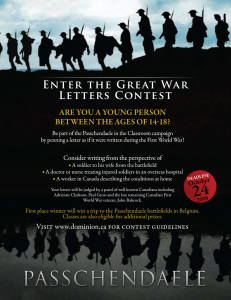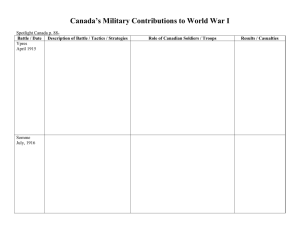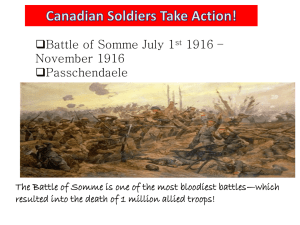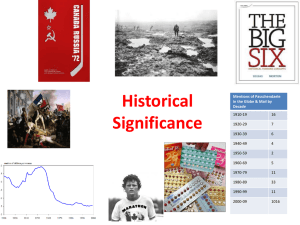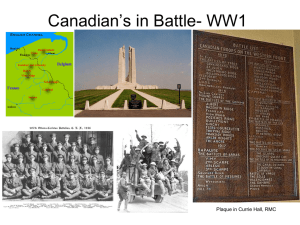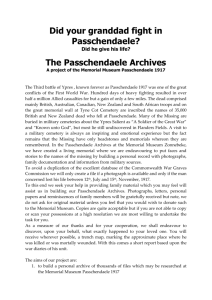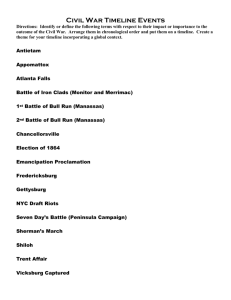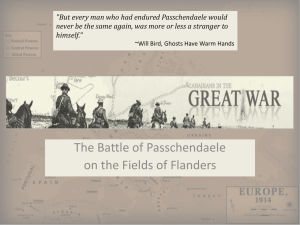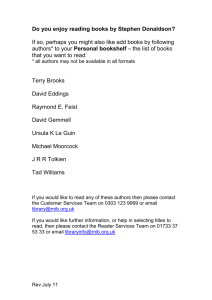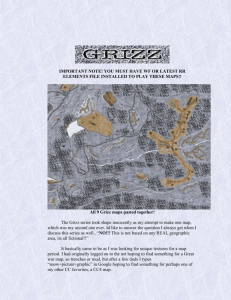Personal narratives of the First World War
advertisement
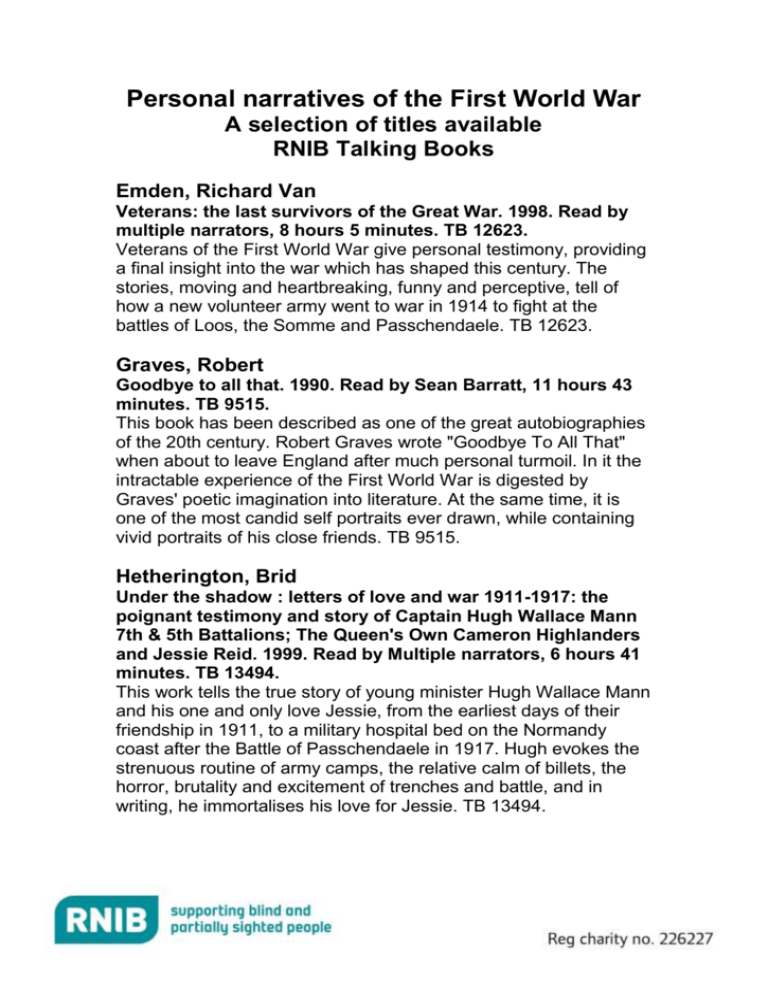
Personal narratives of the First World War A selection of titles available RNIB Talking Books Emden, Richard Van Veterans: the last survivors of the Great War. 1998. Read by multiple narrators, 8 hours 5 minutes. TB 12623. Veterans of the First World War give personal testimony, providing a final insight into the war which has shaped this century. The stories, moving and heartbreaking, funny and perceptive, tell of how a new volunteer army went to war in 1914 to fight at the battles of Loos, the Somme and Passchendaele. TB 12623. Graves, Robert Goodbye to all that. 1990. Read by Sean Barratt, 11 hours 43 minutes. TB 9515. This book has been described as one of the great autobiographies of the 20th century. Robert Graves wrote "Goodbye To All That" when about to leave England after much personal turmoil. In it the intractable experience of the First World War is digested by Graves' poetic imagination into literature. At the same time, it is one of the most candid self portraits ever drawn, while containing vivid portraits of his close friends. TB 9515. Hetherington, Brid Under the shadow : letters of love and war 1911-1917: the poignant testimony and story of Captain Hugh Wallace Mann 7th & 5th Battalions; The Queen's Own Cameron Highlanders and Jessie Reid. 1999. Read by Multiple narrators, 6 hours 41 minutes. TB 13494. This work tells the true story of young minister Hugh Wallace Mann and his one and only love Jessie, from the earliest days of their friendship in 1911, to a military hospital bed on the Normandy coast after the Battle of Passchendaele in 1917. Hugh evokes the strenuous routine of army camps, the relative calm of billets, the horror, brutality and excitement of trenches and battle, and in writing, he immortalises his love for Jessie. TB 13494. RNIB – supporting blind and partially sighted people Registered charity number 226227 Macdonald, Lyn Somme. 1983. Read by John Richmond, 18 hours 38 minutes. TB 5113. A vernacular history of the Battle of the Somme, the baptism of fire for those who had rushed to join the colours in 1914. The planning was meticulous but one hundred and fifty thousand men were killed and over three thousand more maimed and wounded. For the soldier at the front survival came first, then the next meal and a village girl. The free use of personal recollections makes this a human chronicle of life in war as well as death. TB 5113. Macdonald, Lyn They called it Passchendaele: the story of the third battle of Ypres and of the men who fought in it. 1983. 11 hours 6 minutes. TB 400927. The full horror of World War I is summed up in the word Passchendaele. The struggle to capture this obscure Flemish village cost a quarter of a million casualties in one of the worst campaigns in the annals of warfare. This is the story of Passchendaele, told through the words of the men who fought there. It sets out to capture their bravery and terror in the face of battle, the details of their daily lives and the spirit of humour and comradeship that kept them going. TB 400927. Owen, Wilfred Selected poems 1995. Read by John Cormack, 1 hour 36 minutes. TB 11491. "Bloomsbury Poetry Classics" are selections from the work of some of our greatest poets, aimed at the general reader. The selections have been made by the poet, critic and biographer Ian Hamilton. Wilfred Owen was sent to the front during the First World War. He was encouraged in the belief that poets should tell the truth about the conduct of the war. Owen won the Military Cross for bravery and was killed a week before the Armistice, aged 24. TB 11491. rnib.org.uk Patch, Harry The last fighting Tommy: the life of Harry Patch, the oldest surviving veteran of the trenches. 2008. Read by Bill Wallis, 7 hours 58 minutes. TB 15886. Fighting in the mud and trenches during the Battle of Passchendaele, he saw a great many of his comrades die. In vivid detail he describes daily life in the trenches, the terror of being under intense artillery fire, and the fear of going over the top. The Second World War saw Harry in action on the home front as a firefighter during the bombing of Bath. He also warmly describes his friendship with American GIs preparing to go to France, and, years later, his tears when he saw their graves. TB 15886. Sassoon, Siegfried The war poems. 1934. Read by John Westbrook, 3 hours. TB 4809. The poet enlisted at the outbreak of the First World War and was awarded the Military Cross for gallantry in action. His war poetry depicts the horrors of the trenches, and illustrates his growing bitterness towards hypocrisy and romanticism. TB 4809. Vanier, Georges The wartime letters and diaries, 1915-1919. 2000. Read by William Mackenzie, 10 hours 30 minutes. TB 18547. Vaughan, Edwin Campion Some desperate glory: the diary of a young officer, 1917. 1981. Read by Patrick Romer, 9 hours 19 minutes. TB 4322. Written by a young man who marched into battle with Palgrave in his pocket, this is a moving account of life on the Western Front during the first eight months of 1917. Of his group of ninety men, only fifteen returned. TB 4322. rnib.org.uk
